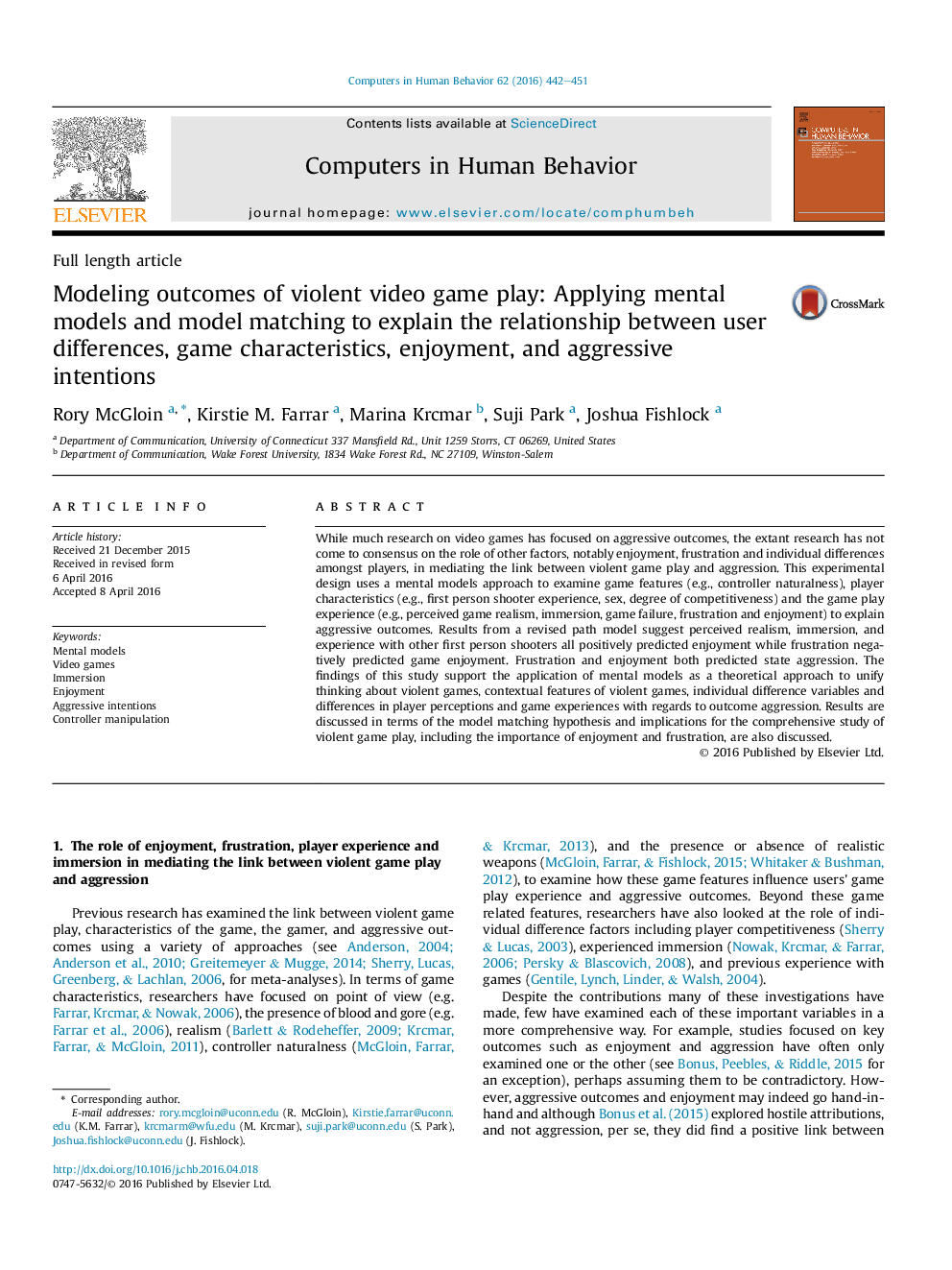| Article ID | Journal | Published Year | Pages | File Type |
|---|---|---|---|---|
| 6836880 | Computers in Human Behavior | 2016 | 10 Pages |
Abstract
While much research on video games has focused on aggressive outcomes, the extant research has not come to consensus on the role of other factors, notably enjoyment, frustration and individual differences amongst players, in mediating the link between violent game play and aggression. This experimental design uses a mental models approach to examine game features (e.g., controller naturalness), player characteristics (e.g., first person shooter experience, sex, degree of competitiveness) and the game play experience (e.g., perceived game realism, immersion, game failure, frustration and enjoyment) to explain aggressive outcomes. Results from a revised path model suggest perceived realism, immersion, and experience with other first person shooters all positively predicted enjoyment while frustration negatively predicted game enjoyment. Frustration and enjoyment both predicted state aggression. The findings of this study support the application of mental models as a theoretical approach to unify thinking about violent games, contextual features of violent games, individual difference variables and differences in player perceptions and game experiences with regards to outcome aggression. Results are discussed in terms of the model matching hypothesis and implications for the comprehensive study of violent game play, including the importance of enjoyment and frustration, are also discussed.
Related Topics
Physical Sciences and Engineering
Computer Science
Computer Science Applications
Authors
Rory McGloin, Kirstie M. Farrar, Marina Krcmar, Suji Park, Joshua Fishlock,
